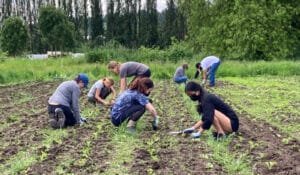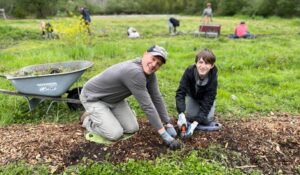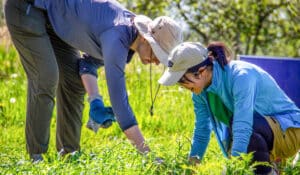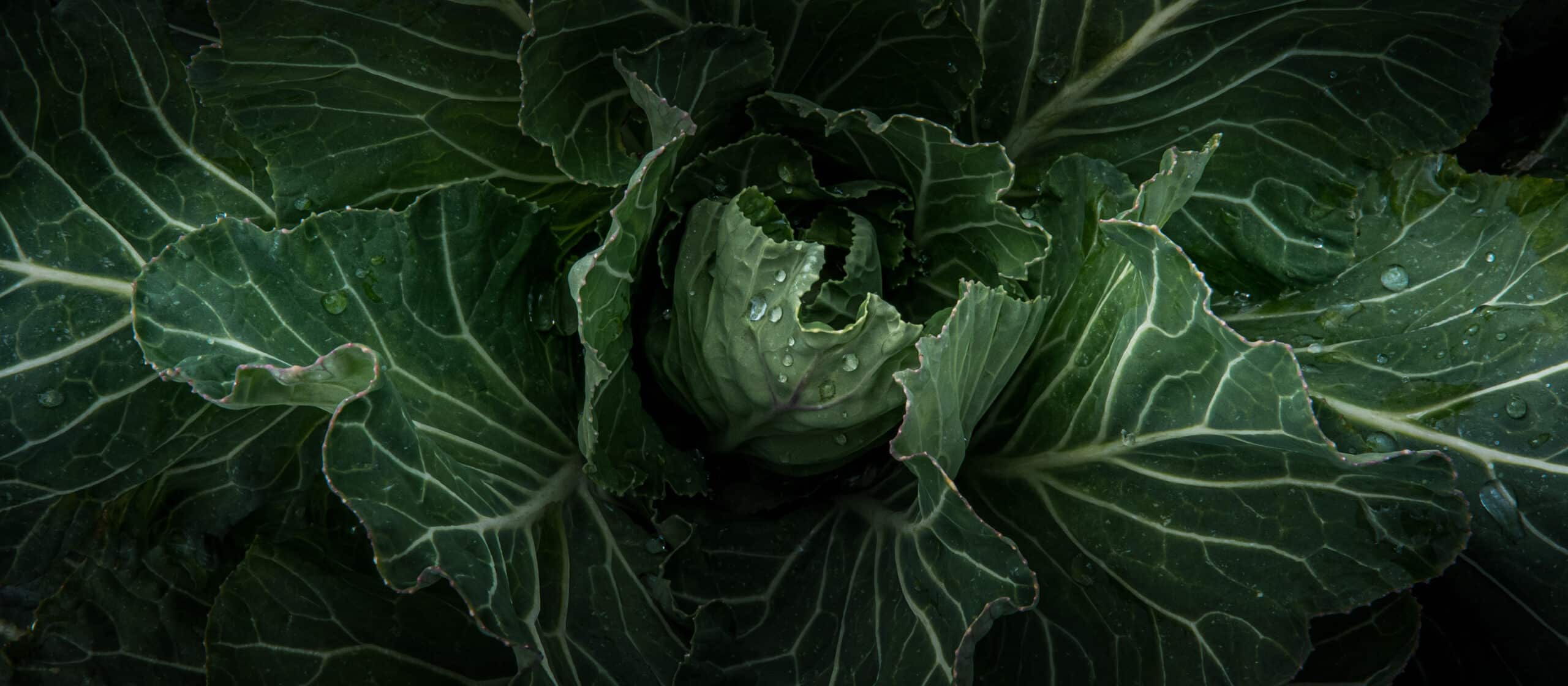
Seed Saving and Swapping: The Work of 2021 Superheroes
Seed Saving and Swapping: The Work of 2021 Superheroes
- posted on: February 28, 2021
- posted by: Rebecca Jordan
"*" indicates required fields

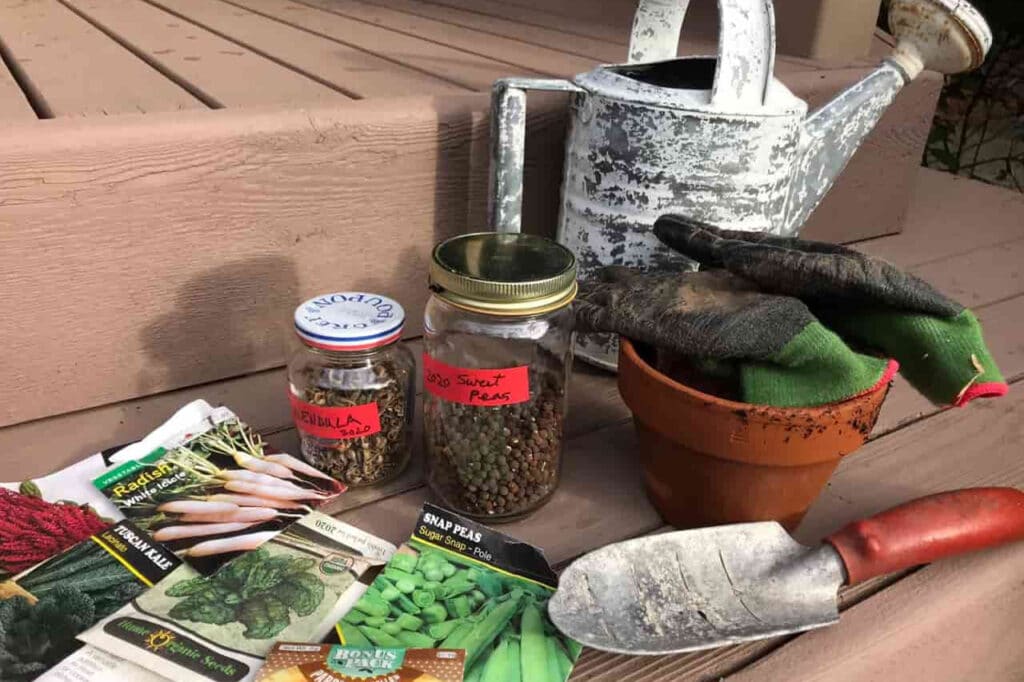
Winter may still have her cozy cloak over our spirits and activities, but we are peeking out at spring. When crocuses and primroses start to open, dreams of flowers, vegetables, and fruits take over the gardener’s mind.
Whether you have a plot in a pea patch or beds at home, sharing and community can enrich your gardening experience. Sure, you can buy all you need from garden centers and seed companies; the real treasures, though, are the starts you discovered at the local garden club sale, the divisions from the botanical garden’s fundraiser, the cuttings from Grandma’s shrub, and the seeds your friend collected from his tried-and-true plants.
A seed swap is like shopping at a free thrift store. You may come in looking for something particular, but find a few things you didn’t know you needed. For novice and veteran gardeners, it’s a great way to try growing something new without a financial investment. Since you take only the amount you need, and you offer whatever you don’t need, precious seeds are less likely to be wasted in half-packets left over every season. In pandemic-free times, annual seed swaps in many communities are family-friendly mini-festivals for mingling with fellow seed enthusiasts, enjoying some live music and maybe a bake sale or raffle, and learning about beekeeping or worm bins. Seed libraries are another way to get good seeds for free. You request seeds with the condition that you will pay back seeds from your harvest.
The Future of Food Depends on Seeds
Sharing and trading our garden stock is not only personally fulfilling; the future of food depends on it. Economical food growing, whether on a small suburban farm or a reclaimed city lot, depends on sharing resources and regenerating open-pollinated plants (the seeds of which have been pollinated by birds, insects, or wind—not artificially hybridized or genetically modified). Saving heirlooms is critical for food variety, cultural heritage, and for the local ecology, providing food sources for pollinators and all the critters doing essential work to keep soil and water in healthy balance. Seeds from high-performing plants grown in a particular area will yield plants suited to those conditions, whether it’s a drought-prone, high temperature, or rain forest climate. Our civilization grew from our ancestors saving and reproducing the best plants for food where they lived.
Although humans have grown and saved seeds for millennia, we have also been instrumental in their destruction. Seeds of Diversity estimates that in the last century over 75% of food crop varieties have vanished and only 10% of the remaining varieties are available to purchase from seed companies. As biodiversity declines, animal extinction rates increase. The climate crisis is putting pressure on all species to adapt to changing conditions and seed preservation is increasingly vital. The inflexibility of monoculture farming, which relies on the success of the same crops on the same land year after year, is becoming an ever–riskier proposition for our food security.
The good news is that there are organizations worldwide dedicated to seed conservation and biodiversity, as reported by Foodtank. In addition to collecting and preserving seeds, they are helping commercial growers to improve practices with diversity in mind, and empower and educate gardeners and small farms. Reclaim Seed NYC, the Indigenous SeedKeepers Network and the World Vegetable Center promote seed saving and sharing for food and economic equity and preserving heritage.
You can be part of this growing movement of rebel seed savers working to preserve biodiversity. By putting a few extra plants in your garden, you can let seeds mature to save for next year’s swap. Beware: seeds from hybrid plants will not reproduce with the same result, and some plant species have different varieties which will cross pollinate if they are grown close together, resulting in disappointment. One year I shared with neighbors seeds I had lovingly saved from my showstopping Jarrahdale pumpkins, only to have the perplexed gardeners ask me in late summer to identify the homely and tasteless marrows that appeared on the plants. I had grown zucchini and other squash nearby and didn’t yet know their amorous ways.
See You at the Seed Swap!
The Sammamish Valley Alliance and 21 Acres are presenting the Fifth Annual Sammamish Valley Seed Swap Saturday, March 6, through Saturday, March 20 between 10:00 a.m. and 3:00 p.m.
The Covid-19 pandemic has necessitated some imaginative changes to what is traditionally a very social one–weekend event. This year’s swap, free and open to all, will be do-it-yourself at a covered table outside the 21 Acres Farm Market. You don’t have to bring seeds to take some, nor are you expected to take seeds if you just want to share. Here are some guidelines on participating:
- Bringing seeds—They should be reasonably cleaned of chaff and hulls and not more than three years old. Label them with as much information as you can, such as botanical and varietal name, year collected, planting and growing requirements.
- Taking seeds—Bring your own packaging and a pen for labeling. Plan realistically for how many of each type of plant you want and have space for. You are at a buffet table with many guests, so think before you take a whole packet of seeds. You should take 2-3 seeds for every plant you hope to grow this season; not all seeds will germinate, and not all plants will thrive.
Take your place in a movement to prevent seed species extinction by saving, growing, and sharing seeds! There is no better year than 2021 to dream big and get your hands dirty. Here are some resources for further exploration.
- If you’re new to seed saving and swapping, you’ll find some great resources at Seed Savers’ Exchange and Saving vegetable seeds | UMN Extension.
- Learn how to organize a seed swap in your own community.
- The documentary Seed: The Untold Story tells of the fight against monoculture agriculture and the burgeoning movement of sustainable local food and seed saving.
- Read about 27 Organizations Working to Conserve Seed Biodiversity – Food Tank.
- Check out the King County Seed Library, a great resource to borrow and share seeds.
About Mary King
Mary King is a member of the Farm Market team. She was raised in the Midwest but has lived in Washington for over 30 years, including 20 in Woodinville. She has enjoyed volunteering in many interest areas in which education has played a role: as a WSU Master Gardener, teaching middle school students to grow vegetables; as an adoption counselor for cat shelters; as a writer for a charitable craft enterprise; and as a WSU certified Sustainable Community Steward. An avid foodie and thrifty living enthusiast, Mary loves finding ways to “use it up and make it do” in the kitchen, garden, and home. Zero waste has been her lifelong niche, so she’s no stranger to mending clothes, stretching food, and rescuing the abandoned but still useful item.











 back to blog overview
back to blog overview

